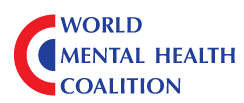A Note on Our Organizational History
In March 2017, shortly after Donald Trump’s inauguration, the American Psychiatric Association (APA) created a gag order out of an obscure guideline prior to the Trump administration called “the Goldwater rule.” This alarming act is the reason we held an ethics conference at Yale School of Medicine, my institution, the very next month. It drew national attention and led to the public-service book, The Dangerous Case of Donald Trump: 37 Psychiatrists and Mental Health Experts Assess a President. It also led me to become a whistleblower not just of the president but of the APA.
The book became an unprecedented New York Times bestseller of its kind, speaking to the hunger of the public, and we donated all revenues to the public good so as to remove any conflict of interest. The featured authors represent only a small sample of the many thousands of mental health professionals who came forth in historically unprecedented ways. Together we formed the National Coalition, which became the World Mental Health Coalition (WMHC) with international membership, by the end of 2017. It is the only professional organization to address the issue of dangerous leadership, intending to step in where we believed the American Psychiatric Association failed in leadership. It also remains the largest organization of mental health professionals to speak up about the dangerous mental impairments of Donald Trump. While the alarm of the moment brought us together, our mission is broader: to promote societal mental health and wellbeing in general.
To illustrate how psychological dangers in a position of power can spread to other domains, we held another unprecedented conference, with the book’s second edition in March 2019, at the National Press Club by the title, “The Dangerous State of the World and the Need for Fit Leadership.” A panel of thirteen top national experts assembled from fields as diverse as law, history, political science, economics, journalism, social psychology, nuclear science, and climate science, and C-SPAN broadcast our three-hour discussion in full. We tried to educate the public about how the president’s psychological dangers translated into social, cultural, civic, and geopolitical dangerousness and followed up in October 2020 with an emergency follow-up meeting.
Since the first Yale conference, Congress members had reached out to us, and eventually we met with over fifty lawmakers on Capitol Hill. They encouraged us to educate the public medically so that they could act politically. We were initially very successful, raising the issue of the president’s mental health to become the number one topic of national conversation. Many of us were interviewing with the media many hours a day, every day, and the public was listening.
Just when we believed we were close to having an effect, the APA stepped in, accusing us of “armchair psychiatry” and “the use of psychiatry as a political tool,” even though alerting the public about potential dangers and the need for a public servant to undergo an evaluation is not diagnosis. Rather, it was breaking its own new “Goldwater rule,” rendering judgments on us public figures by this time, without having examined us and gotten consent from us (its new requirement for making any comment, not just diagnosis, since the Trump administration). It also remained quiet about its own former officers who diagnosed but did so in ways to eliminate problems in the president. Finally, it failed to mention that its “rule” did not apply to the 94 percent of practicing mental health professionals who are not APA members, including myself and most members of the WMHC (many of whom resigned from the APA in objection to its inconsistent ethics).
Our professional responsibility to society, on the other hand, is universal, and even outlined in the APA’s own code of ethics as being of primary importance and a mandate under which “the Goldwater rule” is a mere annotation. In addition, the APA itself says we should “serve society by advising and consulting with the executive, legislative, and judicial branches of government,” mentioned before “the Goldwater rule.”
While the resulting loss of media exposure hampered our efforts to meet our societal responsibility, no one seemed to feel the loss more than the public. It never stopped flooding us with the messages, “Where are the psychiatrists? Where are the psychologists?” Americans had to learn to do without expertise, just as it has with the pandemic, and the results have been equally devastating. Since learning of Covid-19, we stated that the death toll would reflect not the characteristics of the virus but the president’s mental state, and now we have a blow-by-blow account of how what we said would happen, happened. A Columbia University study confirmed that 130,000 to 210,000 of the 217,000 Covid-19 deaths at the time were avoidable.
Knowledge saves lives. Only when the public is equipped with knowledge can it properly protect and govern itself. We believe that there are still many dangers we can avert if we had a full understanding of the situation at hand, instead of singling out mental health as the one field from which the people cannot access expertise.
Our other actions have included a full-scale, independent and peer-reviewed mental capacity evaluation in April 2019 that demonstrated total incapacity, more than 800 petitioning Congress in December 2019 about the dangers, and 100 senior mental health professionals going on video record in September 2020 to declare the current president too psychologically dangerous and mentally unfit to be president. In August 2020, we also published more than 300 pages of our letters, petitions, and conference transcripts, including our March 2020 “Prescription for Survival.”
We continue in our endeavor to serve society by empowering the people through education and by sharing our expertise.
Bandy X. Lee, M.D., M.Div.
President
